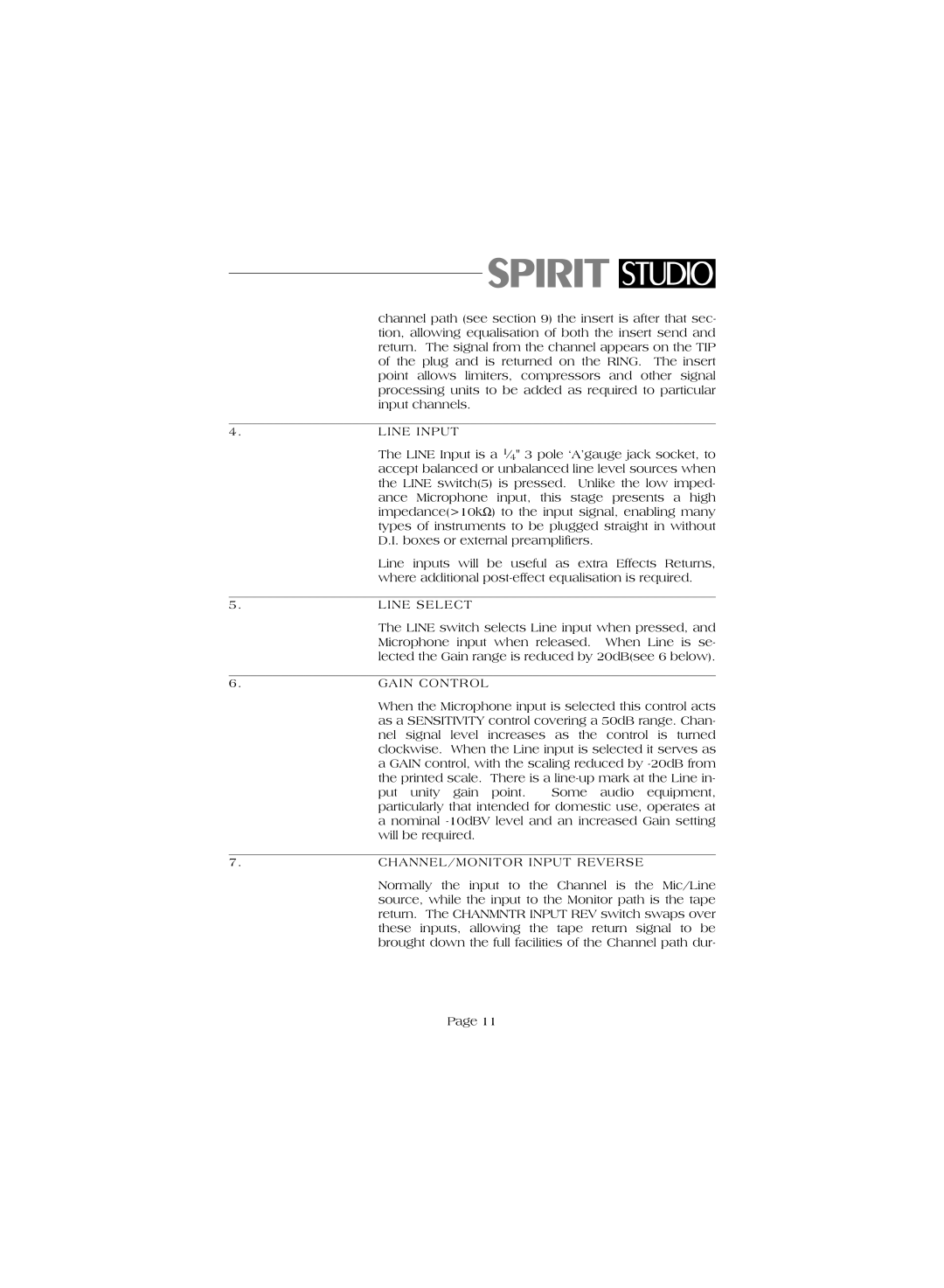| channel path (see section 9) the insert is after that sec- | ||
| tion, allowing equalisation of both the insert send and | ||
| return. The signal from the channel appears on the TIP | ||
| of the plug and is returned on the RING. The insert | ||
| point allows limiters, compressors and other signal | ||
| processing units to be added as required to particular | ||
| input channels. |
|
|
|
|
|
|
4. | LINE INPUT |
|
|
| The LINE Input is a 1⁄4" 3 pole ‘A’gauge jack socket, to | ||
| accept balanced or unbalanced line level sources when | ||
| the LINE switch(5) is pressed. Unlike the low imped- | ||
| ance Microphone input, this stage presents a high | ||
| impedance(>10kΩ) to the input signal, enabling many | ||
| types of instruments to be plugged straight in without | ||
| D.I. boxes or external preamplifiers. |
| |
| Line inputs will be useful as extra Effects Returns, | ||
| where additional | ||
|
|
|
|
5. | LINE SELECT |
|
|
| The LINE switch selects Line input when pressed, and | ||
| Microphone input when released. When Line is se- | ||
| lected the Gain range is reduced by 20dB(see 6 below). | ||
|
|
|
|
6. | GAIN CONTROL |
|
|
| When the Microphone input is selected this control acts | ||
| as a SENSITIVITY control covering a 50dB range. Chan- | ||
| nel signal level increases as the control is turned | ||
| clockwise. When the Line input is selected it serves as | ||
| a GAIN control, with the scaling reduced by | ||
| the printed scale. There is a | ||
| put unity gain point. | Some audio | equipment, |
| particularly that intended for domestic use, operates at | ||
| a nominal | ||
| will be required. |
|
|
|
| ||
7. | CHANNEL/MONITOR INPUT REVERSE | ||
| Normally the input to the | Channel is | the Mic/Line |
source, while the input to the Monitor path is the tape return. The CHANMNTR INPUT REV switch swaps over these inputs, allowing the tape return signal to be brought down the full facilities of the Channel path dur-
Page 11
